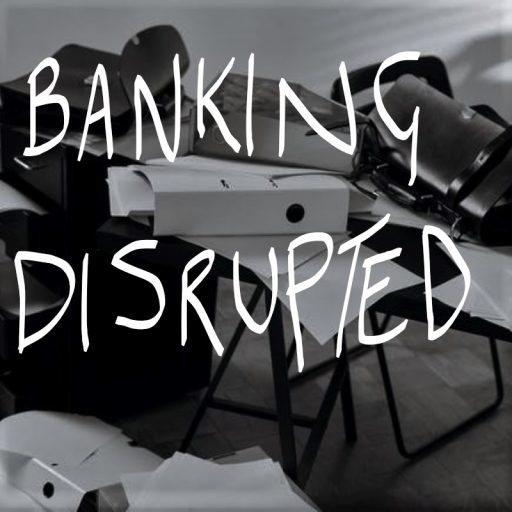The pandemic has fuelled the gig economy in ways we have not seen or experienced before. As individuals think about career prospects, the ending of furlough, and the natural downsizing agenda that firms follow when the climate becomes challenging, personal income diversification becomes front of mind.
According to the FSB … “at the start of 2020, there were 5.94 million small businesses (with 0 to 49 employees), 99.3% of the total business. SMEs account for 99.9% of the business population (6.0 million businesses)”. The expectation is that these micro and small businesses will continue to grow in number as the creator economy takes hold. Traditionally, people have tended to create a business plan, speak to their bank about financing, and understand how to accept payments when starting their new business. But is this the right strategy, and is this enough due diligence when thinking about setting up a new venture?
Having followed CH over the last two months, where I have joined several rooms explicitly designed to help entrepreneurs/small business, I have probably heard some of the best advice for anyone looking to start a business or scale an existing project. Several of the regular moderators of rooms, or “Mods”, cover a spectrum of topics designed to give small business and entrepreneurs sound advice on growing audience, engagement, and scaling. Here is a short profile of some of the Mods that I see making a real difference and the areas they cover:
John Lee – Brand, Marketing, and Social Media Expert. Helping businesses establish their brand, attract an audience, drive engagement, add value and drive sales. John is a social media mastermind, with several tips for building followership, fast. John is a multi-millionaire and has set up several successful businesses, starting his journey in the property sector.
Rob Moore – “The Disruptive Entrepreneur”. Supporting individuals with exercising agility, pace, and momentum in getting their business started and scaled. A great advocate of the test and learn approach or succeed quick/fail fast. Rob is a no-nonsense, straight-talking, bestselling author (Start Now, Get Perfect Later) and has built several multi-million-pound businesses over the last 15 years from the ground up.
Dan Priestley – London based serial entrepreneur and best-selling author. Dan has extensive expertise in business model configuration and planning for growth. He supports several newbie entrepreneurs in setting themselves up for success. He is also the co-founder of Dent Global, one of the world’s top business accelerators for entrepreneurs and leaders to stand out and scale-up
All the insights, covered daily by the Mods and their best practices, are not ordinarily available from banks, accountants, or financial advisors for budding business owners. This made me think about how can banks learn from this platform to give businesses not only an account, loan, or ability to accept payments… but also do something much more fundamental… help them start, scale, survive, and thrive. This would be the pinnacle of customer care and client centricity. The closest model I have seen to this in banking is from NatWest, where they offer the Business Builder Programme. This is not entirely surprising as historically NatWest has been the go-to bank for new business start-ups. This is a great initiative where businesses can access training, support, access a community and attend business building events. However, much more than that can be done in this space… almost akin to business-startup-scaleup-as-a-service (BSSAS).
BSSAS models have become increasingly crucial as delinquency/failures are set to become a feature of the economy as we continue to feel the impacts of the ongoing pandemic. In this climate, businesses need more support from their banks to survive and thrive. Here are five services/ideas that can be incorporated into a Bank BSSAS model to better support new start-ups, micro-businesses, and participants in the gig economy, which are based on some of the recurring themes I have heard on Clubhouse over the last two months
Five Themes that can be offered by Banks under BSSAP
- Viable Business Check – creating a toolkit to stress test the business idea using a community of entrepreneurs that have navigated this journey previously. Offering a mini “Dragons Den” format to have a level of viability checking before an idea is taken forward to becoming a business. Here, questions are asked to assess is there a brand, is the broad/macro/micro niche identified, is there a manageable go-to-market, can this scale, and is there a sustainable market opportunity
- Brand Development – Support and ideation to help develop a brand positioning across the core Social Media Platforms. An introduction to using Facebook, Instagram, YouTube, and LinkedIn to build awareness, drive engagement, and gain followership. Examination of web and mobile app presence in driving business awareness and creating an engagement platform that helps with omnipresence
- Digital Marketing and Broader Marketing – Access to strategies to create successful businesses launches, creating engaging sales copy, developing methods for creating a compelling offer, offering value, and then creating sales. Specific support tools for video content and podcasting can also be incorporated into the know-how sessions
- Payment Acceptance – How to look at cost effective ways of accepting payments for goods and services, either online or face to face. Giving ideas on which products work better with which type of web/mobile set-ups. Also giving an assessment of capabilities like Stripe, Square, Zettle and the like, in driving business growth
- Collaboration tooling & software – getting tips and hints on which tools and software can support each one of the streams above. Looking at business tools like Xero, QuickBooks to save time with accounting tasks, as well as productivity tools like Trello, Citrus Additionally, help start-ups drive automation of businesses processes, particularly marketing activity that is driven across social media platforms e.g., Hootsuite, Leadpages
This list is not exhaustive but serves to get the conversation started on how networking platforms can support the banking industry, and the customers it serves. Afterall, the ability to help customers grow their business more broadly than just offering banking products has got to be a win-win for both banks and customers.




